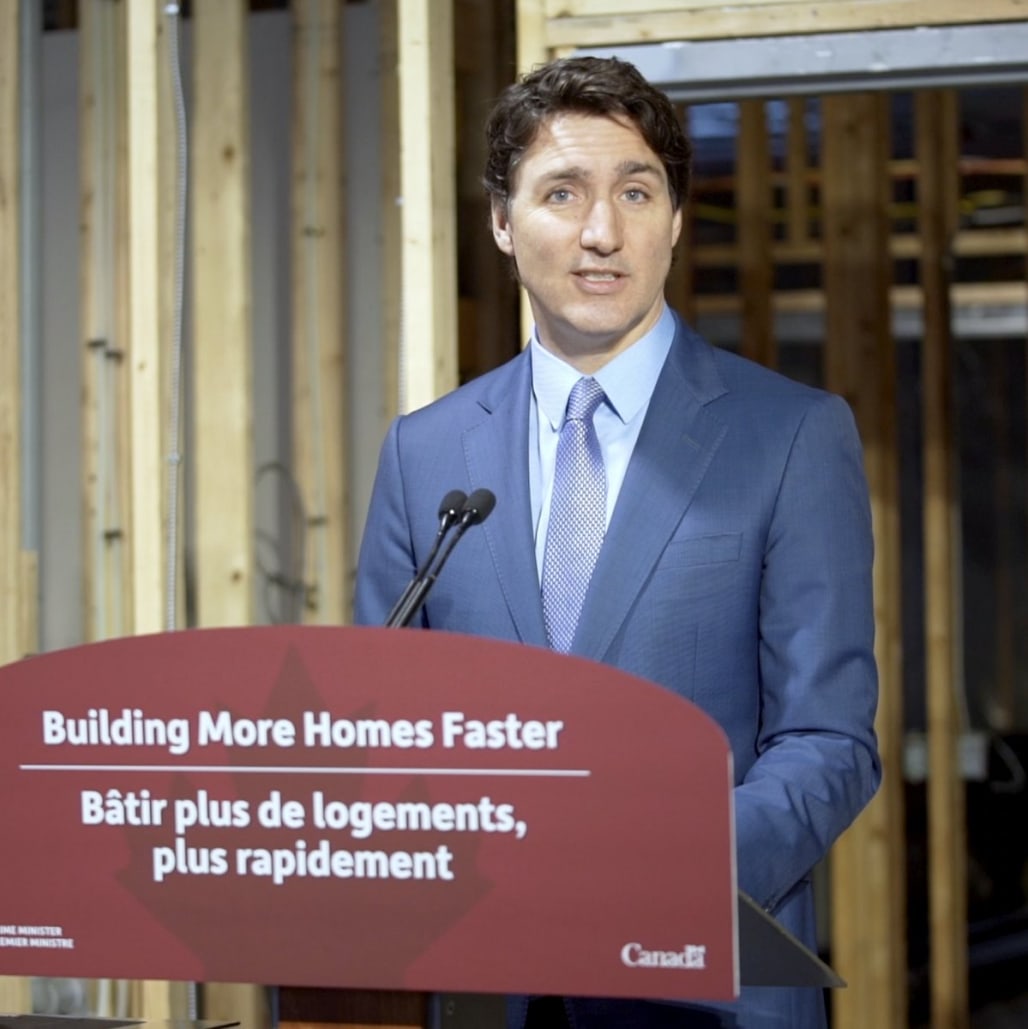
Trudeau announced the Housing Accelerator Fund last Friday in Guelph. (The mayor of Guelph, Cam Guthrie, hosted the event; judging from Twitter, he’s pro-housing.) I’m glad to see Trudeau explicitly calling for more housing, and identifying NIMBYism as a key issue.
The Housing Accelerator Fund will accelerate change and eliminate barriers to new housing supply. The federal government will directly fund municipalities that submit action plans for funding. The boldest plans resulting in the most housing units, especially affordable units, will be rewarded.
This fund will adapt to local housing needs. It’ll be a flexible tool, designed to help cities and communities unlock major new supplies of housing.
For example, municipal action plans could include initiatives like updating permitting systems, tackling NIMBYism by introducing zoning reforms, or incentivizing transit-oriented development.
We’re funding these action plans to encourage municipalities to think bigger and bolder, to accelerate project approval timelines, to increase densification, to free up underused land, and to reduce construction costs. Put simply, to build more, faster.
What are the actual details? Backgrounder.
Total funding: $4 billion.
Intended to provide incentives to municipalities to approve more homes, with funding both in advance and on delivery of results.
Municipalities applying for funding are required to have a housing needs assessment, a target which increases the average annual rate of growth by at least 10% (and which exceeds the national average of 1.1%), and an action plan with specific initiatives.
The application portal opens in June.
My interpretation of the Housing Accelerator Fund:
The federal government is basically negotiating with individual municipal governments where housing is scarce, offering grants from the Housing Accelerator Fund as a carrot to allow more housing. My guess is that a lot of these municipalities would be in Ontario, where the housing shortage is particularly bad and where the Ford government is moving slowly.
This is consistent with Trudeau’s “sunny ways” approach, as opposed to Poilievre’s more punitive approach (threatening to withhold federal gas-tax funding and municipal GST rebates from cities of more than 500,000 which have high home prices and which fail to increase housing by 15%).
What’s not clear to me from the backgrounder is whether the size of the grant is based on the scale of the housing targets (e.g. if Ottawa will offer a larger grant for a plan which allows twice as much housing), or whether it’s based only on the costs of implementing the action plan (e.g. switching to electronic permitting). I would think that if the idea is to provide incentives for municipalities to set higher targets, then you’d want to be able to offer larger grants (bonuses) based on higher targets, not just on implementation costs.
This appears to be similar to “YIMBY grant” programs proposed in the US. In 2016, the Obama administration released a “housing development toolkit” outlining ways that municipalities could allow more housing (establishing by-right development, simplifying approval processes, eliminating parking minimums, providing density bonuses, and so on), and proposed allocating $300 million for “Local Housing Policy grants” to facilitate these changes. The Urbanist.
Kriston Capps provides a detailed description of a more recent proposal: Bipartisan Bill Would Bring $1.5 Billion to Spur New Housing (2021).
It’s a competitive program, with local governments submitting proposals which are then “scored” to determine who receives grants. The housing targets in the proposals, the loosening of land-use restrictions, and the streamlining of processes would all be major factors.
There’s two kinds of grants: planning grants to support housing policy plans, and implementation grants to put them into action.
At least 10% of the funding is targeted for rural areas.
Jenny Schuetz of Brookings comments: “The deliberately exclusionary places are unlikely to bite at fiscal carrots.” But: “There are also localities that in good faith would like to expand housing options for low- and moderate-income households, but they’re not sure how to do that. This includes a bunch of small-population and resource-constrained communities that don't have the time, capacity, or expertise to figure out what in their zoning, building code, environmental regs, etc., needs to be changed.”
The article also describes an earlier small-scale program in Washington state:
One model came in 2019, through a program implemented by Washington State, and it could point to how cities and counties are likely to respond to the federal solicitation. This state-level program [Housing Action Plan Grants] authorized $5 million in local grants to help cities draft housing needs assessments. Of the 40 or so eligible cities in Washington with a population of 20,000 or more, about 70% applied for and received grants. “We were pleasantly surprised by the number of cities who took strong action,” said Washington State Representative Joe Fitzgibbon, the author of the bill behind the state program, in an email. “This policy has been effective in unlocking access to planning grants that aren’t available to cities in any other way.”
In practice, the American political system makes it difficult to pass legislation: the White House and Congress can be held by two different parties, party discipline is weak, and there's many veto points. At Vox, Rachel Cohen provides a critical assessment of the effectiveness of the Biden administration's actions so far on housing, arguing that housing hasn't been a high priority at the federal level: It's time to take on the NIMBYs (March 2023).


